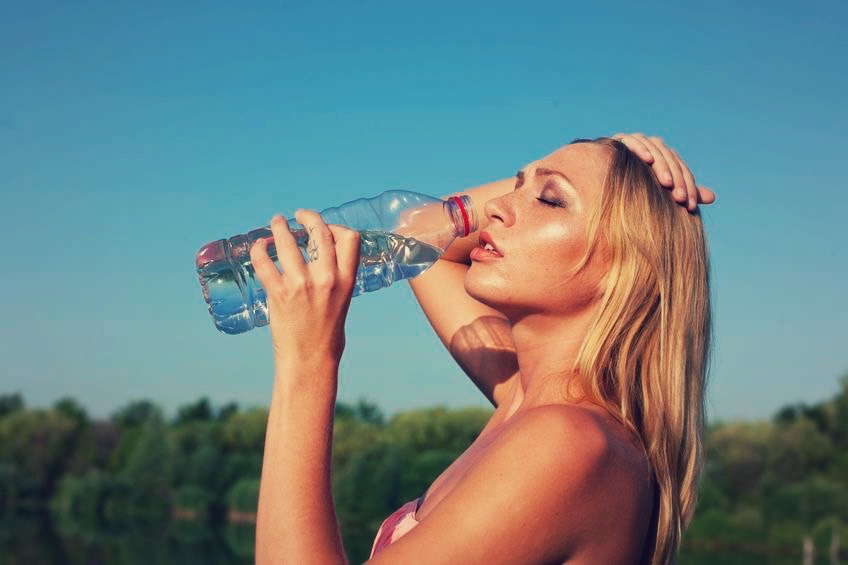Staying hydrated is key in ensuring your body is functioning optimally year round, but it is especially important during the warm summer months. Depending on your location, you may be facing excessive heat and humidity. In addition, warmer weather is prime for spending more time outdoors. All this adds up to an increased need to stay hydrated.
How do I know if I’m dehydrated?
If you have severe dehydration, you will likely experience sleepiness, confusion and dizziness. In addition, you could find yourself unable to urinate or produce tears when crying. This type of dehydration is extreme and requires medical attention immediately; heat injury, seizures, cerebral edema, shock, kidney failure or even death could occur.
If you’re dealing with dehydration, it will usually be of a lesser degree, and can be remedied by simply making a conscious effort to increase your water intake. The easiest way to tell if you’re mildly dehydrated is to pay attention to your urine. If it is a transparent color, similar to that of light lemonade, you are appropriately hydrated. If your urine is dark yellow or honey colored, you need to drink more water immediately. (Conversely, if your urine is completely transparent, you may want to cut back. There is such a thing as drinking too much water, although it’s difficult to do.)
If you have a fever, are vomiting or have diarrhea, you are more likely to become dehydrated. Also, be mindful that pregnant women have a higher risk of dehydration.
How much water should I drink?
The Institute of Medicine reports that men should drink 13 cups of fluid per day and women should drink about 9 cups per day. If these figures seem high, keep in mind that these recommendations are for fluid, not specifically water. While water is clearly the best choice for maintaining hydration, other fluids (such as coffee, tea and even sodas) also count toward the overall fluid total. For water specifically, the common recommendation is to aim for about eight glasses per day. (If you’re breastfeeding, you’ll need more than that.)
Those who participate in activities that cause them to lose more fluids, such as laborers who work outside in the heat and endurance athletes, should consume additional water. In these situations, carbohydrate and electrolyte beverages are also effective because they replace nutrients lost through excessive sweat.
Are there ways to stay hydrated besides just drinking plain water?
Yes. You don’t have to chug water all day in order to stay hydrated. In fact, your fluid needs can be partially met through dietary changes. The Mayo Clinic reports that food provides approximately 20 percent of total water intake. Try adding more cucumbers, lettuce, watermelon, and grapefruit to your diet. The items on this list (which also includes smoothie-perfect staples like strawberries and spinach) all contain more than 90 percent of water by weight.
Or, if you’re a fan of drinking your water instead of eating it — but are looking for a change — consider adding an infused H20 beverage to your day. Try mixing blueberries and oranges, kiwis and cucumbers ,or watermelon and mint into a pitcher of water. Remember to let the flavors sit together for a time before drinking to allow them to infuse thoroughly. If you’re more of a pop-and-pour person and aren’t into cutting fruit, you could also try coconut water. (Coconut water happens to be one of my favorite beverages because it is so refreshing.) If you’re dieting, though, be mindful that coconut water is not entirely calorie-free, and that it contains sugar.
Remember — there are lots of ways to stay hydrated, and the consequences for not doing so are severe. Grab your water bottle, carry it with you, and stay safe this summer.
To learn more about the importance of dehydration, visit the Mayo Clinic here. Or, if you want to find out what the color of your urine says about your health, visit the Cleveland Clinic’s highly-informative infographic here.


















